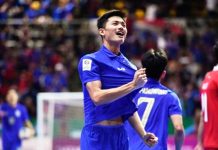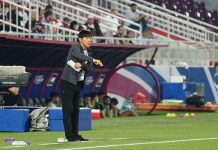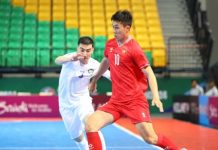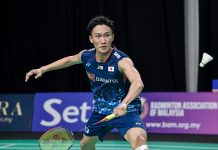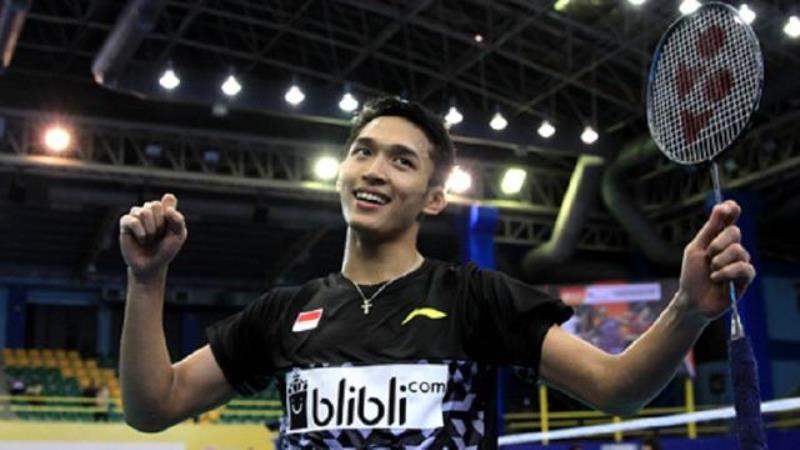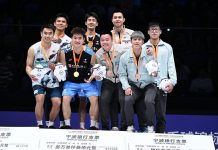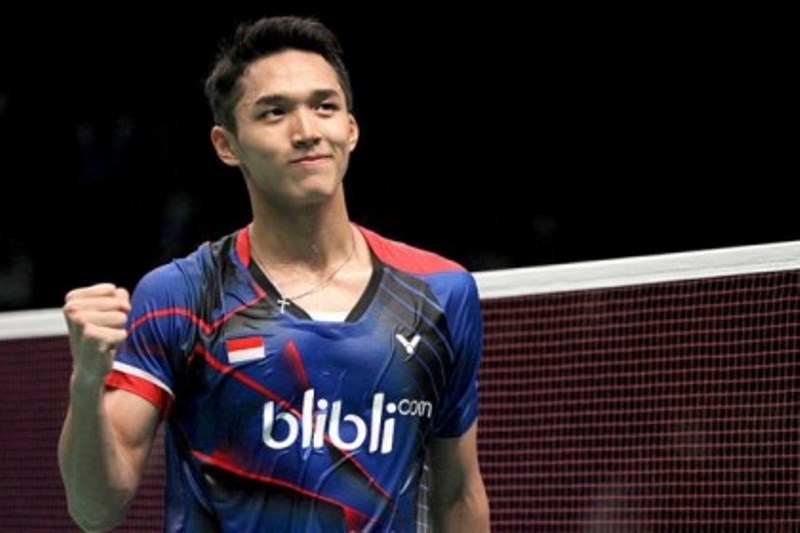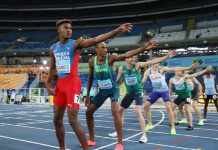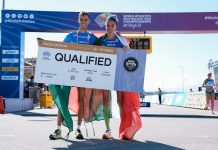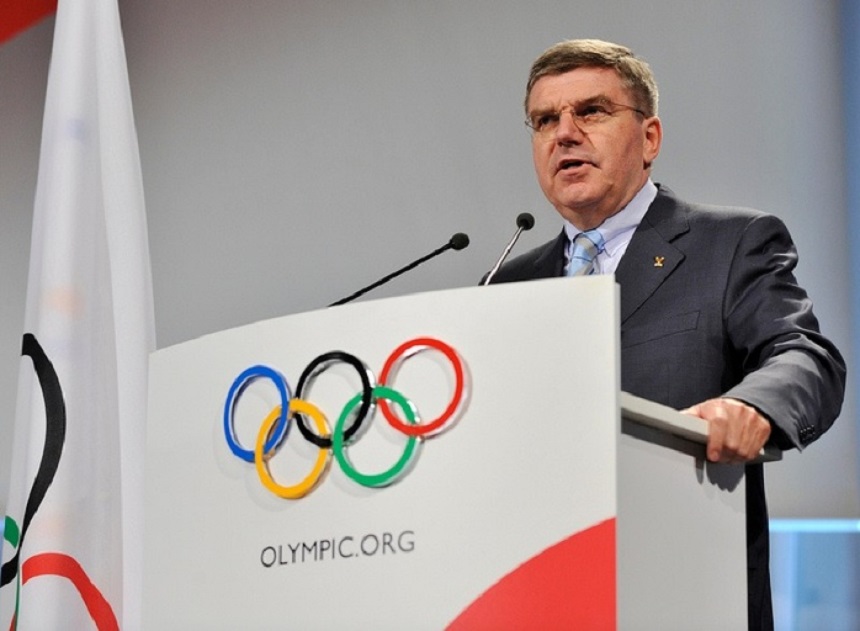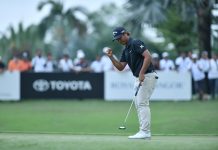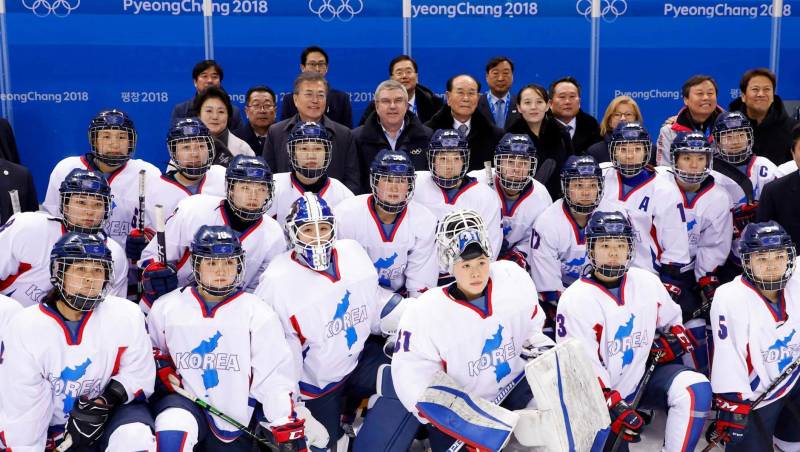
The IOC announces that the IOC President, Thomas Bach, is visiting the Democratic People’s Republic of Korea (DPRK).
This visit follows an invitation from the National Olympic Committee (NOC) of the DPRK which was extended during the discussions regarding the “Olympic Korean Peninsula Declaration” on 20 January 2018 in Lausanne.
The agreement resulted in the two delegations of the DPRK and the Republic of Korea (ROK) marching together as one, under the name Korea and behind one Korean unification flag, at the Opening Ceremony of the Olympic Winter Games PyeongChang 2018. It also led to the formation of a unified women’s ice hockey team with players from the two NOCs, sending a message of peace from the Korean Peninsula to the world.
The IOC delegation arrived in Pyongyang, North Korea, on 29 March, and will leave on 31 March in the morning.
The discussions will focus on the further development of sport in the DPRK after the successful participation of athletes at the Olympic Winter Games PyeongChang 2018; and the preparation of athletes from the NOC of the DPRK with the objective of qualifying for and participating in the Olympic Games Tokyo 2020 and Olympic Winter Games Beijing 2022, as well as the Youth Olympic Games 2020 and 2022.
This visit is part of the close cooperation and consultations the IOC enjoys with all of the 206 National Olympic Committees.
For background:
The IOC and sport on the Korean Peninsula
1988 – Despite negotiations, athletes from the DPRK did not participate in the Olympic Games Seoul 1988.
1998 – The IOC started talks for participation of a unified Korean team at the Olympic Games Sydney 2000.
2000 – Athletes from the NOC of the ROK and the NOC of the DPRK marched jointly behind the Korean unification flag at the Opening Ceremony of the Olympic Games Sydney 2000, but competed for their respective NOCs.
2004 – Athletes from the NOC of the ROK and the NOC of the DPRK marched jointly behind the Korean unification flag at the Opening Ceremony of the Olympic Games Athens 2004, but competed for their respective NOCs.
2006 – Athletes from the NOC of the ROK and the NOC of the DPRK marched jointly behind the Korean unification flag at the Opening Ceremony of the Olympic Winter Games Turin 2006, but competed for their respective NOCs.
2014 – The IOC started to evaluate the situation on the Korean Peninsula, beginning with discussions at the level of Head of State and with the United Nations.
2014 – The IOC offered a special programme of support to athletes from the NOC of the DPRK for their qualification for the Olympic Winter Games PyeongChang 2018.
2016 – During the Olympic Games Rio 2016, a meeting was held between the IOC and a high-level governmental delegation from the DPRK. In this meeting, the IOC also discussed its special programme of support to the athletes of the NOC of the DPRK to help with their qualification and participation within the framework of the United Nations sanctions.
2017 – Starting in January 2017, this process was amplified with a series of meetings and talks with Heads of State and Government from different countries in the region and beyond, and also at the United Nations; and with continuing discussions with the NOC of the DRPK.
2017 – Numerous meetings and consultations with representatives of the NOC of the DPRK were held. The talks included the evaluation of the special programme of support that started in 2014. The programme was developed with a special view to athletes potentially qualifying for and participating in the Olympic Winter Games PyeongChang 2018.
November 2017 – The IOC President, in his address to the United Nations General Assembly, expressly reiterated the invitation “to everyone to join us at the Olympic Winter Games 2018” and continued by saying: “Everyone is invited to celebrate our shared values, to celebrate the best of the human spirit, to celebrate our unity in diversity.” The UN General Assembly adopted by consensus the resolution “Building a peaceful and better world through sport and the Olympic ideal”. New wording for the first operative clause of the resolution for the Olympic Winter Games PyeongChang 2018 urged the UN Member States: “to ensure the safe passage, access and participation of athletes, officials and all other accredited persons taking part in the Olympic Winter Games and Paralympic Winter Games.” The consensus for the Olympic Truce resolution included both the Republic of Korea and the Democratic People’s Republic of Korea, as well as the future hosts of the Olympic Games: Japan, China, France and the United States of America.
January 2018 – The IOC convened a meeting in Lausanne on Saturday 20 January 2018 between the IOC, the NOCs of the ROK and the DPRK, the two Korean Governments and the Organising Committee of the Olympic Winter Games PyeongChang 2018. The meeting resulted in all parties signing the “Olympic Korean Peninsula Declaration”. This declaration contained exceptional decisions of the IOC to make the participation and joint activities of the two teams possible. These decisions resulted in the two delegations marching together as one, under the name Korea and behind one Korean unification flag, at the Opening Ceremony. It also resulted in the formation of a unified women’s ice hockey team with players from the two NOCs.
February 2018 – Athletes from the NOCs of the ROK and the DPRK marched as one team, behind one Korean unification flag at the Opening Ceremony of the Olympic Winter Games PyeongChang 2018, sending a message of peace from the Korean Peninsula to the world. For the first time in their Olympic history, the two NOCs united to compete as one team in a sport with the unified women’s ice hockey team at the Olympic Winter Games PyeongChang 2018.



